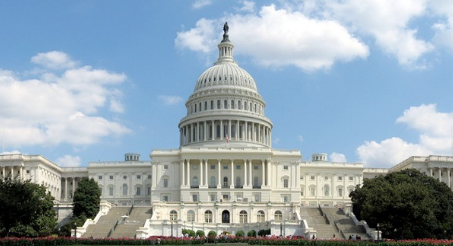The First Draft of Obamacare Repeal Is a Good Place to Start
Posted on March 20, 2017

(This originally appeared in The Hill)
It is said that journalism is the first draft of history.
In the same vein, legislation that first passes the House is usually the first draft of the law.
And the Senate is the world’s toughest copy editor.
I was thinking about that in the context of efforts by House Speaker Paul Ryan (R-Wis.) and his team to pass legislation to repeal and replace ObamaCare.
President Trump has made it clear that he is open to negotiation.
That makes sense to me.
The legislative process, by design, is collaborative.
It requires input from consumers, constituents, industry interests, experts, actuaries, staff, political professionals and, of course, the politicians who ultimately vote on it.
Healthcare is a particularly combustive issue because it impacts every American citizen — and many who are not yet citizens.
Everybody has an interest, and those interests frequently clash.
Doctors feel they don’t get paid well enough. Nurses don’t get enough respect. Hospitals don’t get reimbursed for what they do and frequently are on the front lines of dealing with those who don’t take care of themselves and don’t have any money to pay. Insurance companies have to make a profit to stay in business but get attacked when they do make a profit. Drug companies are supposed to create brand-new products that save lives, but seemingly can’t if the government has the power to negotiate prices. Seniors want access to cheap drugs and cheaper care. Children can’t take care of themselves and need help, especially when they get sick. Millennials want to avoid paying for insurance for as long as possible.
And then comes the big question: How are we going to pay for all of this?
ObamaCare is unpopular, but repealing it without putting in place a better system is even more unpopular.
There is no solution to any of this that will make everybody happy.
The legislative process is designed to reconcile all of these interests.
But passage out of the House is only the first step, and it is rarely the most important one.
The job of the House majority is to set the table and prepare the menu. It is not to serve the final meal.
Because the House functions by a simple majority, it usually tries to position itself to bring the most menu items as possible to the final negotiation.
What will pass into final law usually is quite different from what initially passes the House.
I say all of this because many seem to believe that the House bill as originally conceived by the House Republican leadership will somehow become law as is.
The bill that passed the House committees of jurisdiction has some obvious flaws, but it also has some strengths.
According to the Congressional Budget Office, the legislation will mean 24 million Americans won’t have health insurance. That’s a flaw. But on the good side, it saves the federal treasury $339 billion over 10 years.
All of this matters a little. But right now, the most important thing is to pass the first draft of repeal and replace and get it to the Senate for some serious editing.
Once the House and Senate pass their two versions, they can negotiate over the differences.
This is where the real legislating happens. This is where the meal is really being prepared. This is where the class of interests becomes the most intense.
But none of that negotiating can happen until the House passes its repeal and replace plan.
Republicans, if they are serious about fixing ObamaCare, will unite together to pass the House bill.
If they want to keep the former president’s most important legislative accomplishment in place, they will vote to kill the House bill.
A vote against the Ryan plan is a vote to keep ObamaCare in place. Explain that to your constituents.
